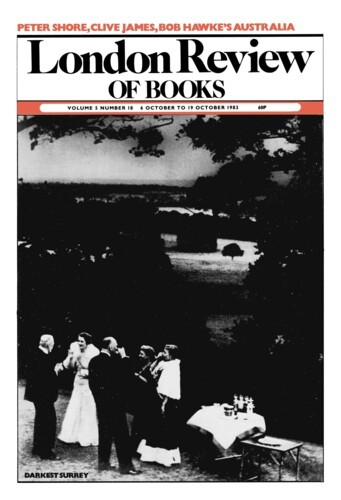Dignity and Impudence
Oliver Whitley, 6 October 1983
Described as a biography, this is also a detective story. Repeatedly Hugh Greene’s BBC colleagues are quoted, anonymously, as being unsure as to what were or are his values, his principles, his philosophy. Occasionally someone doubts if there were or are any. Once, we are told, in an oblique attempt to find a clue to the elusive pattern of his motives, he was asked to say with whom in the English Civil War he could identify himself. Would a lover of liberty, women, wine and hard news have been a Cavalier or a Roundhead? I remember the occasion. The answer was as inconclusive as perhaps the question was misconceived. Nevertheless, the episode made me turn later to Buchan’s Life of Cromwell to refresh my memory of the character of Thomas, Lord Fairfax, who, like Greene, had friends in both political camps. Turning idly to the seemingly unpromising character of Cromwell himself, I could not help being struck by the aptness to Greene of phrase after phrase in Buchan’s final appraisal of the Lord Protector and regicide. ‘Few minds have had a more invincible candour.’ ‘He was never out of hearing of the common voices of life.’ ‘One talent he possessed in the highest degree, the power of recognising and appreciating facts.’ ‘He was first and foremost a man of crisis.’ ‘He believed in diversity of station … as congenial to human nature and as giving stability to society.’ ‘His tolerance was based on the same principle.’ ‘His mind was wholly unspeculative, and he never felt the compulsion, which others have felt, to weave his views into a harmonious system of thought.’ The reader will find all these items in the identikit portrait which Michael Tracey constructs.

